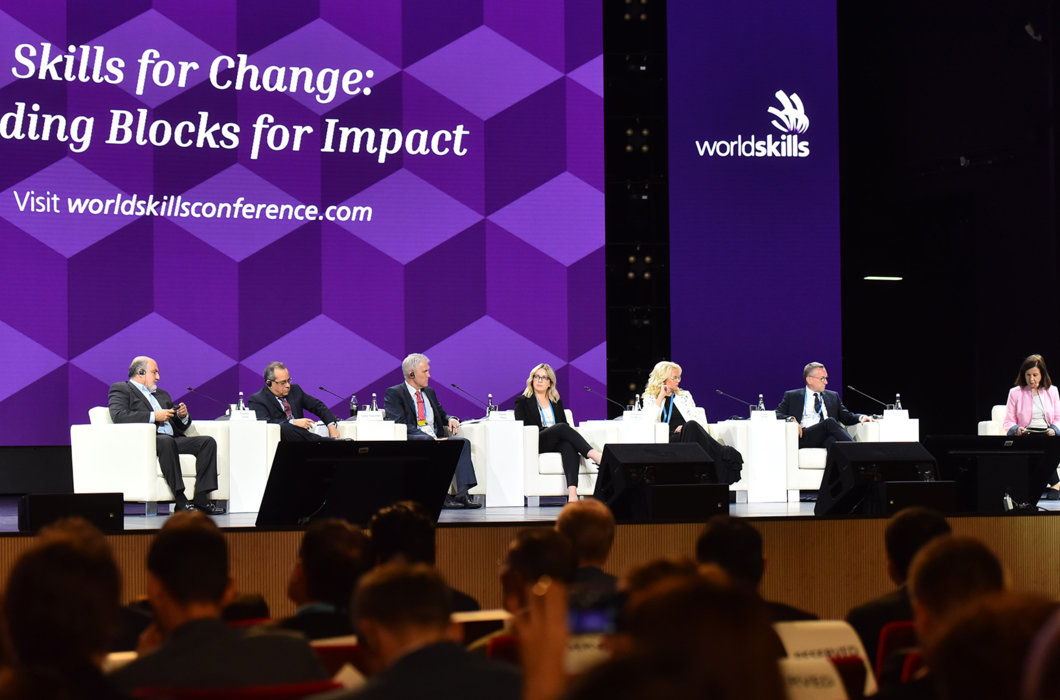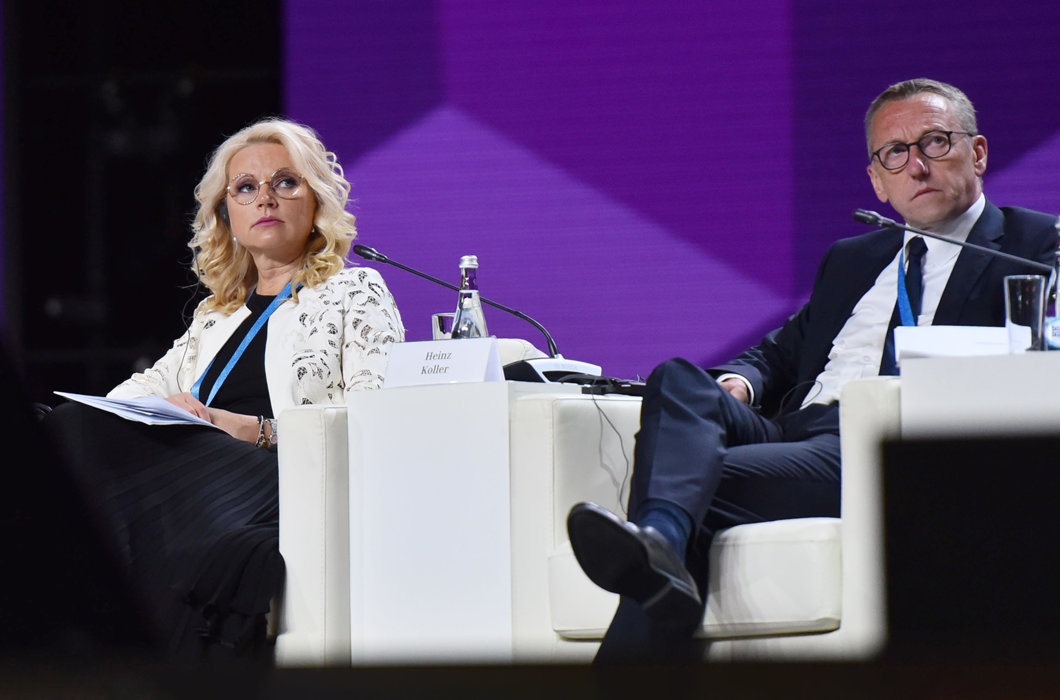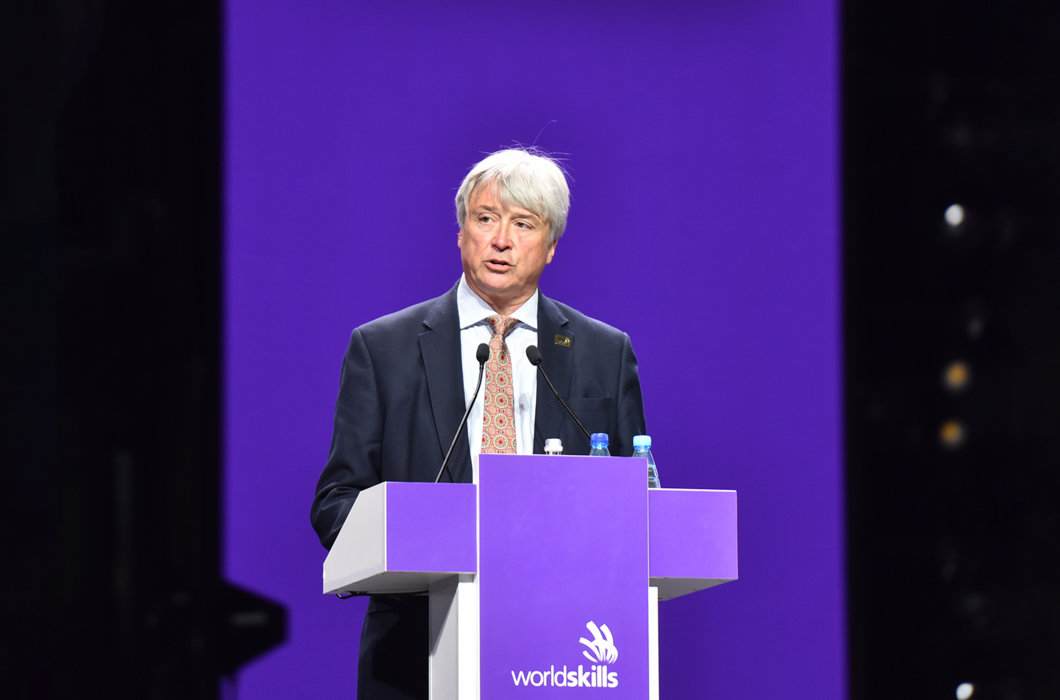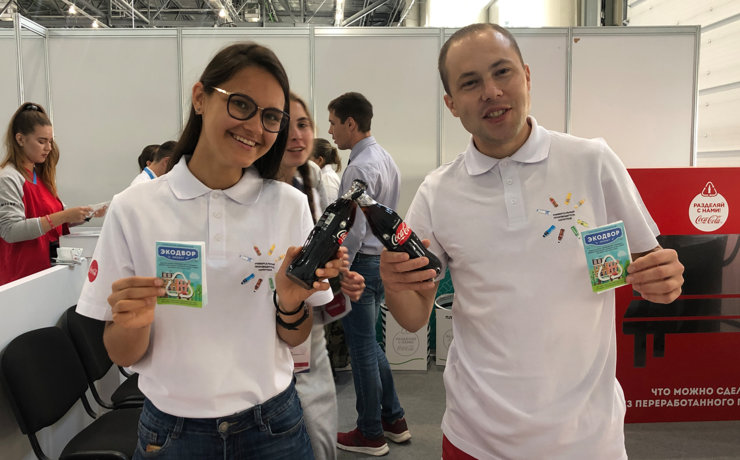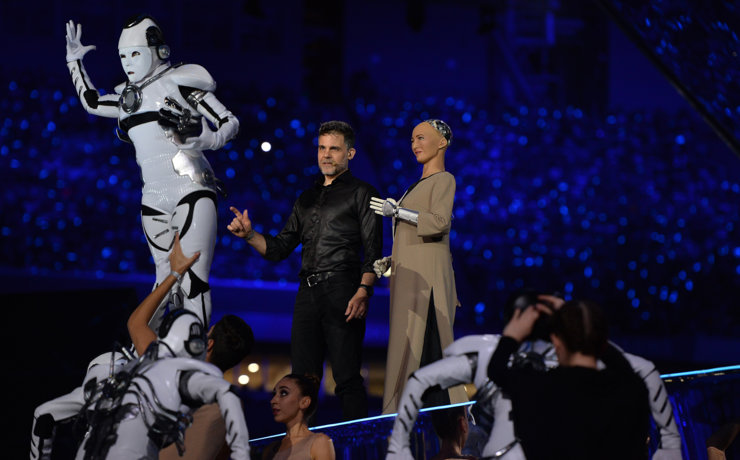WorldSkills Conference 2019 as world’s driver of vocational education and training
![]() 23.08.2019, 10:30
23.08.2019, 10:30
On the sidelines of the 45th WorldSkills Competition, the WorldSkills Conference 2019 is to take place in Kazan from 23 to 24 August. Held under the theme ‘Skills for Change: Building Blocks for Impact’, the event is a platform for discussing economic, social, and technological trends and to find solutions to the most pressing issues in educational systems, workforce training, and labour market transformation.
The Conference will host over 30 sessions gathering together participants from 60 countries. There will be representatives of the world’s foremost vocational and skills development organizations, leading corporations and governments, researchers, industry partners, global experts in futurology, as well as experts in risk engineering, education, green economy, digitalization, and automation.
Youth will have a crucial role at the Conference, with a series of inspiring young people who are using skills to create exciting opportunities for themselves and the world. They will deliberate over the dramatic changes the world is facing, and the transformation process of the economy and the labour market.
The Conference will start with a panel featuring Tatyana Golikova, Deputy Prime Minister of Russia for Social Policy; Heinz Koller, Regional Director, Regional Office for Europe and Central Asia, International Labour Organization; Jaime Saavedra, Global Director, Education, World Bank; Amelia Addis, Regional Representative for ASEAN and Oceania, WorldSkills Champions Trust, and Founder of Botanica, and Nassim Nicholas Taleb, researcher, risk specialist, and author.
In an attempt to solve the questions of reaching full human potential and what should be done to prepare the youth for the future, the discussion will touch upon the opportunities to harness collective efforts so that we can face the challenges of climate change, globalization, and the technology revolution.
The WorldSkills Conference 2019 will host an important debate between Nassim Taleb and Dmitry Peskov, Special Representative of the President of the Russian Federation on Digital and Technological Development and Director of the department “Young Professionals” of the Agency for Strategic Initiatives. The experts will share their opinions on the essence of risk-engineering and its benefits for creating better management tools and building a strong competitive economy. They will explain why traditional risk management used by governments and corporations is useless and why we need to invest in risk for a breakthrough.
According to Nassim Taleb, almost all events involving major implications for markets, global policy, and people’s lives, are completely unpredictable, and, therefore, traditional risk management used by governments and corporations is useless.
Dmitry Peskov believes that, for a breakthrough, one needs to invest in risk, make a transition from KPI to value management, and shift from prototypes to life-cycle management and venture management schemes instead of avoiding risk.
The Conference structure is divided into three main tracks, “Roadmaps to thriving societies”, “Skills for evolving economies”, and “Towards self-sustaining ecosystems”. The program aims to encourage the discussion of skills in the context of the global trends, as well as the requirements of various economies of WorldSkills members.
Globalization, demography dynamics, and migration are transforming modern society. Given the new global labour market environment, skills ensure equal opportunities for everyone to reach their full potential for the benefit of the economy and society.
The “Roadmaps to thriving societies” track will host discussions on the issues of building a new multicultural society and the skills it requires, as well as about new forms of cooperation between people, social institutes, and educational institutions.
Women are gaining more power worldwide, and this has a strategic impact on the sustainable development of our society in general. Women account for half of the entire labour pool of the planet, and the Speakers of the “No women? No success for the 4IR” session” will share their opinions on possible solutions to this issue.
Speakers of the “Roadmaps to thriving societies” track include: Manish Kumar, Managing Director, CEO, National Skill Development Corporation India; Oleg Podolskij, coordinator of the Digital Economy of the Russian Federation national programme, under the Digital Skills Centre; Danny Gauch, Director General, Worlddidac Association Switzerland; Monica Pfarr, Executive Director, AWS Foundation, American Welding Society, USA, and Jan Owen, CEO, Foundation for Young Australians.
With technology developing rapidly, one needs to master new skills quickly to meet the changing demands of economy and innovation. The “Skills for evolving economies” track will serve as a platform for discussing the global trends shaping the new labour market, skills required to succeed in an uncertain future, and ways to create a more productive, competitive and sustainable economy.
One of the track’s sessions titled “Training for tomorrow: Innovations for lifelong learning” will discuss the processes of lifelong learning, new skills mastering, and methods of teaching professions which do not exist yet. The need for lifelong-learning is driven by new technologies, discoveries, and equipment modifications constantly emerging in today’s world.
To be competitive and sought after in the labour market, a person needs to continually improve their knowledge and master new skills throughout their entire life.
Experts are taking part in this session, including: Carl Benedict Frey, author of the book “The technology trap: capital, labour, and power in the age of automation” and Senior Fellow at the Institute for New Economic Thinking; Tatyana Terentyeva, Chief Human Resources Officer, Rosatom; Manuela Geleng, Director for Skills, European Commission; Maxim Voloshin, CEO and Founder, Codewards, and Maxim Kiselev, CEO, ANO Human Capital Development.
Solving environmental issues is one of the key challenges of sustainable development of today’s economy and society. Mastering skills for the preservation of the environment is becoming more and more relevant. As part of the “Towards self-sustaining ecosystems” track, experts will discuss environmental skills, new technology, and innovation that addresses environmental issues, as well as the environmental challenges’ impact on the development of the economy and society.
Among speakers are: Jordan Shapiro, PhD, Senior Fellow for the Joan Ganz Cooney Centre at Sesame Workshop; Kehkashan Basu, President and Founder, Green Hope Foundation; Mwila Kangwa, CEO, AgriPredict Solutions, and Nader Imani, Executive Vice President Global Education, Festo Didactic SE.
The environmental education of the new generation is imperative with environmental issues becoming increasingly relevant in the modern world. During the session “Our planet in 2050: young people’s aspirations for an aware and responsible society”, young Russian and international researchers will share their vision of solutions to global environmental issues and tell inspiring stories about the development and implementation of projects addressing environmental issues and preserving the ecosystem.
For the first time ever, the Future Skills Zone, a specialized area dedicated to high-tech skills, will be part of the event.
Furthermore, there will also be the first-ever national track of the WorldSkills Conference. Training methods tested during that track will find a systemic and large-scale application within the workforce training system across all Russian regions.
The WorldSkills Conference will unite all key stakeholders including legislators, governmental officials, researchers, solution design experts, people who share best practices, educators, competition champions, and the youth.
The Conference will become one of the milestones on the path to forming a new education and training system addressing the needs of the future economy.
